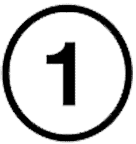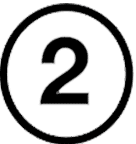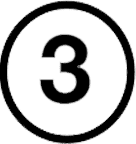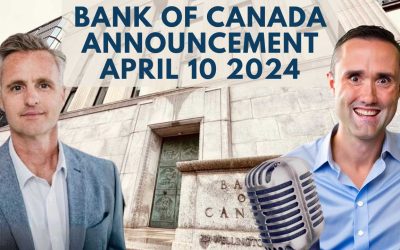Custom Fit Mortgages
Your Red Deer Mortgage Broker
If your bank isn't offering you this rate or better on your mortgage renewal we can help!
As Trusted Red Deer Mortgage Brokers, the Mortgages for Less team offers
preferred mortgages and rates from these lenders and more!
Stay up-to-date with
Market Trends
Check out our blog to stay up to date on the housing and mortgage market.
BoC Keeps Rates The Same. Still On Target For June Rate Cut
Navigating the Waves of Canadian Mortgage Rates in 2024 In the ever-evolving landscape of Canadian finance, staying...
Hey Edmonton! The Bank of Canada Holds Rates
Get expert insights on Edmonton real estate and mortgage rates! Join Jay and Josh as they discuss the latest updates in the market.
Video: Edmonton’s Market Is Heating Up
The Pulse of Edmonton's Real Estate Market in March 2024 Watch our latest video blog episode as Jay Lewis and Josh...

Get Pre-Qualified
Completing the Online Mortgage Application is really the first step! This will help us know what you can qualify to borrow, and when we review it together, it will really help you understand what you can afford.

Select your rate and term
We will help you choose the right mortgage and term that fits your needs. Not just what works for the bank! We will also help you navigate the choices out there to get you the best mortgage and rate for you!

Verify your info and sign
Provide the needed documentation to complete the mortgage application process via our Secure Online Portal. We will carefully go through everything to make sure it is exactly what is required!
Mortgages For Less: Trusted Red Deer AB mortgage brokers with 17 years of experience.
Our team of Red Deer mortgage brokers came together 17 years ago and has since become specialized in residential mortgage loans in Calgary and Red Deer, helping first-time homeowners, and finding solutions for hard-to-finance mortgages. Apply online today to get started with an expert trusted Red Deer mortgage broker who knows every nook and cranny of the complex mortgage industry. From title insurance, appraisal fees, early payout penalties and more, we will help you navigate the path to the best mortgage that suits your needs.
Low income? Poor credit? We can help!
- One credit check for all lenders: Instead of checking your credit multiple times through several lenders (and hurting your credit) we are able to check it just once.
- We will be able to offer you access to normal mortgages offered by most banks as well as creative mortgage solutions for more intricate needs.
- You will not be asked for your SIN online and you can skip any of the requested information fields.
- You don’t need to have all the needed information to fill out a mortgage application: If you know your income, your down payment and a rough estimate of your assets vs liabilities, we can advise you of approximately how much you should be able to qualify for.
- Filling out a mortgage application in no way obligates you to use our services.
Why use Mortgages For Less over other Red Deer mortgage brokers?
Working with Mortgages For Less, you’ll get to know Josh Tagg, our primary mortgage broker. Learn a bit more about high performing mortgage expert from his own words..
“Living and working in Alberta my whole life has given me a very familiar knowledge and understanding of our Real Estate Market. Even with the ups and downs in the oil industry, our Calgary and Red Deer communities continue to be a great places to work, live and raise a family. I am a true Albertan and have spent most of my life here and most of my adult life as a mortgage broker and love helping families get the financing they need. If you are considering a move south to Calgary we have you covered! Please visit our home page which has infomation about how we can help you secure the mortgage financing you need to buy a home in Calgary.”
Read More
“I understand the stresses of working in the oil industry directly – or being in an industry that is directly impacted by the oil industry.
“I am familiar with the neighbouring towns too. Whether I’m visiting family living in Red Deer, or good friends in Airdrie and Strathmore – I know the communities well. I am not just a Calgary Mortgage Broker, I can be your mortgage broker in Red Deer If you do want to meet with someone locally we highly recommend Red Deer Mortgage Lending.
“And I’m not restricted to Calgary or Alberta. No matter where you are in the country, and no matter where you want to live, I can help you buy a home!
“I am available to work around your schedule, even on weekends and evenings. No waiting for appointments to get your pre-approval. Let me get you approved today – clients are my top priority – I work for you, not the bank. The best part of my work is the smile on your face when you get into your new home. I look forward to speaking with you soon!”
Are there 0% Down Mortgages?
Unfortunately, zero down mortgages have been officially discontinued. However, there continue to be other products that may suit your needs. For mortgages in Red Deer, you can use an unsecured line of credit for your down payment – but some restrictions apply.
How to buy a rental property.
Even with a 20% down payment, buying a rental property can be difficult, but we have all sorts of tips and tricks here at Mortgages For Less. We have been able to approve clients who were previously declined by Scotiabank and RBC. Give us a call to find out how to get started. 403-241-3255
Buying and renting simultaneously?
If you are turning your existing home into a rental you can purchase your new residence as owner-occupied with as little as 5% down payment. Different lenders will consider the prospective rental income in different ways which is why using a mortgage broker will help simplify and streamline the whole process. We work hard to get you the best rates, with the best terms and the banks or lenders are the ones who pay our fees. Using a mortgage broker should save you time and money. Your referrals are what keep us thriving year after year for 17 years.
Red Deer First Time Home Buyer?
As a first time home buyer in Red Deer, you can access your RRSP for a down payment without being taxed! Ask your RRSP investor for details. Contributing funds to your RRSP generates a nice tax refund, and then you can further use that same money for your first time home buyer down payment toward your Lethbridge Mortgage. You may even be eligible to use this program if you have owned a home before as long as you have not lived in a home owned by you in the last four years.









